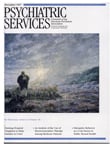Jill Ker Conway, as the author of two notable autobiographies,
The Road From Coorain and
True North (
1,
2), and the editor of two volumes of autobiographical writings (
3,
4), is well equipped to answer the question she poses at the beginning of her exploration of the self-narrative form,
When Memory Speaks: Reflections on Autobiography. Why is autobiography the most popular form of fiction writing for modern readers? And why are writers moved to write their life stories?
The answer, she says, lies in our search for our own identity and the opportunity that autobiography affords us to experience the life of another. Conway makes the analogy to trying on a dress or suit. Reading an autobiography allows us to try on different identities because we want the "confirmation of like experiences" and the "enlargement, and transformation that comes from viewing a similar experience from a different perspective."
Conway observes that culture and history shape our life scripts and consequently the memoirs that we write; self-narratives reflect the history of the period. And because men and women are shaped by the period they live in, they write about and understand their lives in different ways.
In this book she looks at different historical periods, and by using relevant autobiographical excerpts, she demonstrates how the narratives reflect society's understanding of its individuals and their role even while recounting each individual's story. Conway pays special attention to gender issues as well as to the new form the narrative has taken in the postmodern era.
Male autobiographies characteristically are about epic heroes in the style of the classical Greek adventures, man overcoming nature for control of his fate, man as his own agent. From St. Augustine to the conquistador Bernal Diaz del Castillo and other great explorers, the hero is the agent of his own destiny. Rousseau moves the conflict from an external arena to an internal conflict of individual against society. Benjamin Franklin is one of the first capitalist heroes, seeing himself as a self-created man. Like Franklin, Frederick Douglass was a self-created man, although the obstacles he faced, of torture and death, were more severe than the poverty of the runaway apprentice. But for both, there was no luck or external circumstances that created their life, only their own agency. From Henry Ford and Lee Iacocca to James D. Watson, Bruce McCall, Peter Ryan, and Frank McCourt, the range of people and the samples of their stories are impressive and engaging, and Conway weaves their stories together well.
In contrast, women's autobiographies demonstrate striking differences. Hebrew scriptures did have powerful women, but early Christianity tended to see women as incompetent, and it is this view that has continued. One of earliest recognized modes of self-direction for women was at the price of entry to a closed religious community. It did not promote a sense of agency. The works of the medievalist Dame Julian of Norwich are meditative, describing the nature of God and the insignificance of the will in coming to know God.
During the late 18th century, women focused increasingly on romance, family, and emotional fulfillment. They moved from visionary encounters with God to seek the ideal hero. Lovers, reversal of fortunes, even adventure all happened to women. Jane Austin and George Eliot offered a gentle, satirical perspective in their plots. Even when women became professionals, were more educated, and had successes, such as Jane Addams of Chicago's Hull House and birth control advocate Margaret Sanger, their stories were written in conditional tenses and the passive voice. Unlike Henry Morton Stanley, with his often bloody exploits searching for Dr. Livingston, Mary Kinsley, an African explorer, traveled alone by canoe accompanied by a few native crewmen. She supported herself by trading, and when she retired to the Cameroons, there was "no lament for comrades lost in the journey because her expedition had been entirely peaceful."
The experiences of war tended to eliminate the differences in autobiographical presentation between men and women. The accounts of Vera Brittain (World War I) and Winnie Smith (the Vietnam War) described their anger and disillusionment with war and their increasing sympathy with the enemy. Their experiences are not so different from those of male soldiers.
Conway acknowledges that in the postmodern period, the atrocities of Dachau, the bombing of Hiroshima, the regimes of terror and torture, the culture wars in America, and the crumbling of European empires mean there is no central point from which to view the world. As a result, we have new kinds of narratives— "for the young, for ethnic subcultures, for those of different sexual persuasions, for the handicapped, for victims of abuse, in short for anyone whose questions about life fall outside the central narrative of worldly success or of moral and spiritual growth."
When Memory Speaks offers a wonderful opportunity to become acquainted with a wide array of people and their passions. The remarkable voices with which they speak are distinctive, moving, and often fun; Conway weaves their stories together with great ease. The breadth of reading that Conway brings to this effort is remarkable. Reading her book is like having a guide as one browses through a library of the literature of autobiography. The results are thoughtful insights, particularly her discussion of women's memoirs. At times Conway's desire to emphasize a point or theory results in repetition, and even her discussions sometimes take away from the energy of the narratives. Still, this book is a testament to the fact, that in our search for ourselves, "history matters."

